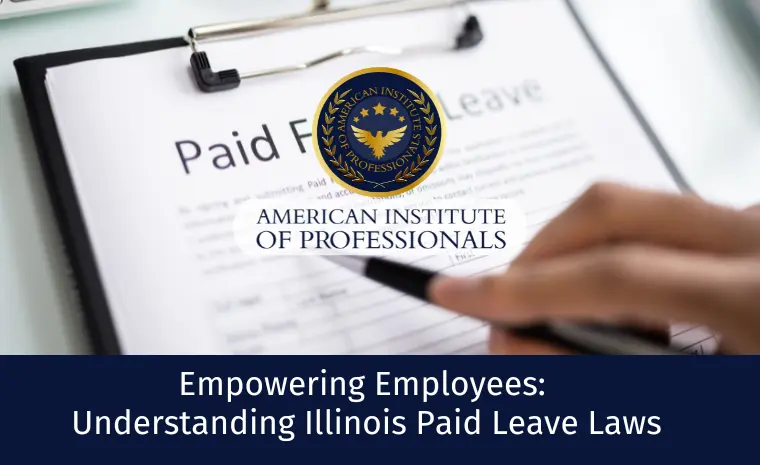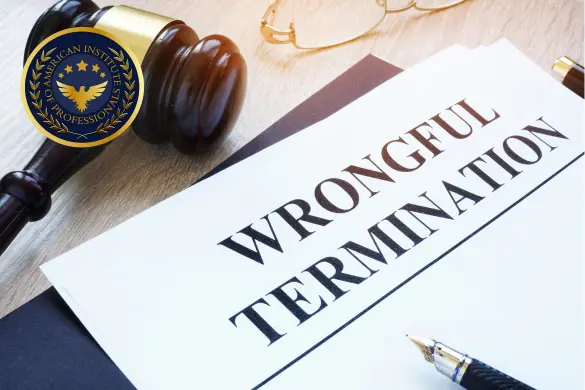The Illinois paid leave laws are pivotal for ensuring workplace equity and employee well-being. From sick leave to family caregiving responsibilities, these laws encompass various scenarios impacting work-life balance. Navigating them demands a clear understanding of regulations with the help of an Illinois labor law attorney.
In this article, we provide a concise overview to empower employers, independent contractors, and employees with the necessary insights for compliance and assertion of entitlements.
An Introduction to Illinois Paid Leave Laws
Illinois paid leave laws are essential guidelines that govern employee rights regarding time off from work for various purposes. Understanding these laws is crucial for both employers and employees to ensure compliance and fair treatment in the workplace. Here’s a brief overview:
- Employee Eligibility: These laws specify eligibility criteria, such as the length of employment and hours worked, often 12 months, to qualify for paid leave benefits.
- Accrual and Usage: Regulations outline how paid leave accrues over hours per day and the permissible reasons for its usage, ensuring clarity for both employers and employees.
- Notification and Documentation: Employees may be required to provide advance notice or documentation for certain types of paid leave, like operational necessity, promoting transparency and accountability.
- Employer Obligations: Employers have responsibilities under these laws, including providing accurate information about paid leave policies and ensuring compliance with legal requirements.
Understanding Illinois paid leave laws empowers employers to create fair and supportive workplace policies while enabling covered employees to effectively utilize their entitled benefits for personal and family needs.
Need Legal Assistance?
Types of Paid Leave in Illinois
Illinois recognizes the importance of supporting employees’ well-being and work-life balance through various types of paid leave. These provisions encompass essential aspects of personal health, leisure, and familial responsibilities. Understanding the distinctions between these leaves is crucial for both employers and employees. Below, you’ll find a concise overview of each type of paid leave as mandated by Illinois state law.
Sick Leave
Illinois key provisions mandate sick leave for employees to address personal illness, injury, or medical appointments. It ensures workers can take time off without financial repercussions when dealing with health-related issues.
Vacation Leave
Employees in Illinois may be entitled to vacation leave, allowing them to take paid time off for rest, relaxation, and personal activities. Employers typically establish policies regarding accrual, usage, notice requirements, unused time, and scheduling of vacation leave.
Family and Medical Leave
Illinois law provides for family and medical leave, enabling eligible employees to take unpaid time off for specific family or medical reasons. This includes caring for a newborn, adopted child, or family member with a serious health condition, and ensuring job protection during extended absences for qualifying events.
Challenges of Implementing Paid Leave Policies
- Administrative Burdens: Implementing paid leave policies requires substantial administrative effort, including tracking accruals, managing leave requests, and ensuring compliance with legal requirements. This administrative burden can strain resources and add complexity to HR operations.
- Cost Considerations: Offering paid leave benefits entails direct costs for employers, including wages paid during employee absences and potential expenses associated with hiring temporary replacements. Balancing the financial impact of paid leave against business objectives requires careful consideration and planning.
- Compliance Complexity: Navigating the intricacies of paid leave laws and payout at termination, at both the state and federal levels, can be complex. Employers must stay abreast of evolving regulations, ensure consistent application of policies, and address potential compliance risks to avoid legal repercussions.

Strategies Effectively Implement Paid Leave Policies
- Clear Communication: Establish transparent and accessible communication channels to inform employees about paid leave policies, including eligibility criteria, accrual rates, and usage guidelines. Clearly outline procedures for requesting and approving leave to minimize confusion and ensure consistency in policy application.
- Streamlined Processes: Implement efficient and user-friendly systems for managing paid leave, such as automated leave tracking software or online portals. Streamlining administrative processes can reduce errors, save time, and alleviate the burden on HR staff, enhancing overall efficiency.
- Employee Education and Support: Provide comprehensive education and support to employees regarding their rights and entitlements under paid leave policies. Offer resources, such as employee handbooks or training sessions, to help employees understand how to access and utilize paid leave benefits effectively.
Conclusion
Understanding Illinois paid leave laws is essential for employers and employees to navigate the complexities of workplace time off effectively. From sick leave to family and medical leave, compliance ensures employee well-being and legal adherence. Employers can benefit from implementing clear policies, streamlined processes, and robust employee support systems.
For further guidance on navigating Illinois labor laws, consider consulting a knowledgeable Illinois labor law attorney today in case you need legal advice regarding compensatory damages.





